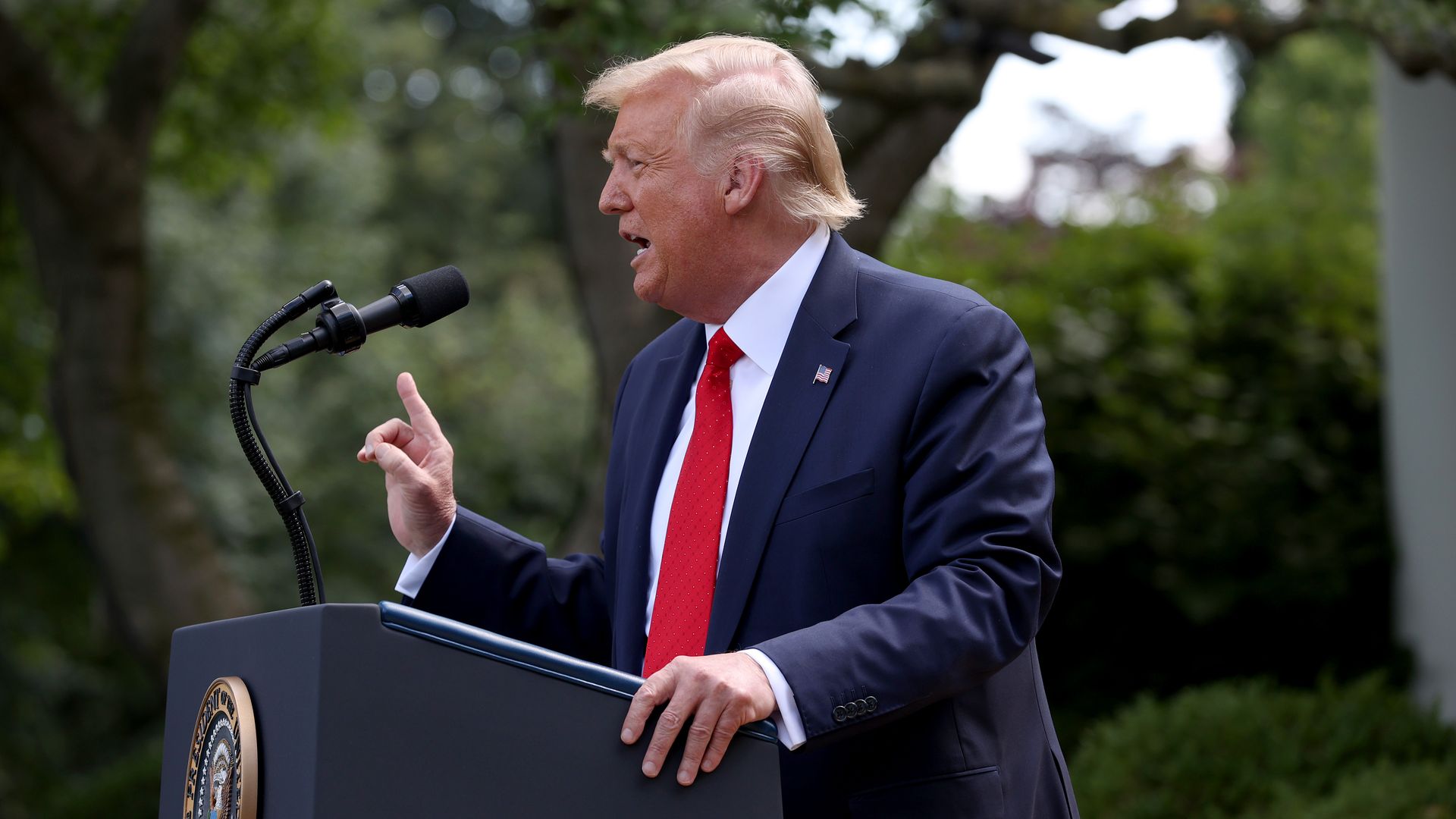Trump signs bill sanctioning China over Hong Kong security law
Add Axios as your preferred source to
see more of our stories on Google.

Photo: Win McNamee/Getty Images
President Trump announced Tuesday that he has signed a bill sanctioning Chinese officials in response to Beijing's national security law for Hong Kong, which dramatically curbs the city's political freedoms. He also signed an executive order ending preferential treatment for Hong Kong.
Why it matters: The bill, which will sanction both Chinese individuals interfering in Hong Kong's affairs and the banks that support them, has broad bipartisan support in Congress. Its passage into law is the latest escalation by the Trump administration against the Chinese Communist Party's efforts to strip Hong Kong of its autonomy.
What he's saying:
"This law gives my administration powerful new tools to hold responsible the individuals and the entities involved in extinguishing Hong Kong's freedom. ... Their freedom’s been taken away, their rights have been taken away, and with it goes Hong Kong, in my opinion, because it will no longer be able to compete with free markets. A lot of people will be leaving Hong Kong, I suspect, and we’re going to be doing a lot more business because of it because we just lost one competitor."— President Trump
Between the lines: Trump used the rest of his press conference to attack Joe Biden in a rambling speech over his policies on China, immigration, the economy, policing and other campaign issues. The speech was laden with falsehoods, and several cable news networks that were carrying it live cut away after about 30 minutes.
What to watch: Two White House officials tell Axios they expect China to retaliate against the move, but it's unclear how it plans to do so.
- Shortly after the Senate passed the Hong Kong Autonomy Act earlier this month, China's Foreign Ministry spokesman Zhao Lijian warned that "China will react strongly and the U.S. shall bear all consequences.”
- And on Monday, China hit back against the U.S. for sanctioning Chinese officials over their human rights abuses against Uighur Muslims by banning several prominent lawmakers, including Sens. Marco Rubio (R-Fla.) and Ted Cruz (R-Texas), from entering the country.
